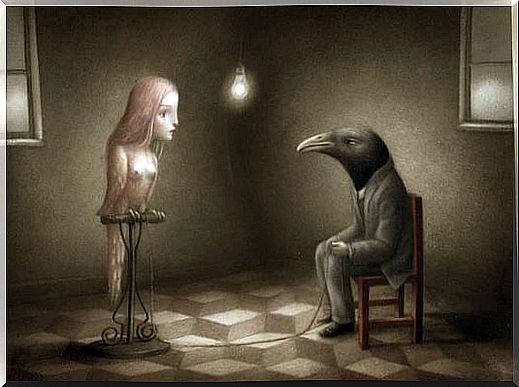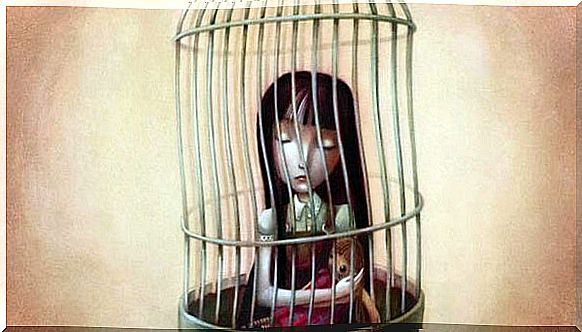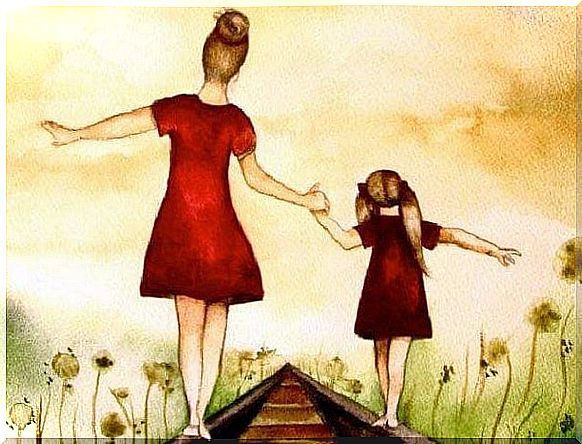Invisible Family Contracts

Many of you have probably seen how loyalty and friendship between certain family members prevents someone else from pursuing their dream. There is a term for this in psychology: invisible family contracts or loyalties.
This is defined as a set of beliefs and inhibitions we inherit from our families that shape how we see ourselves and how we react to our emotions (both the emotions we experience and the emotions we allow ourselves to wish for). In other words, we inherit our family’s problems.
In short, we accept certain circumstances because we are afraid of losing the love, attention and respect of our relatives (parents, grandparents, siblings). This naturally results in a development of fear, because no one wants to be disinherited.
We can also use this emotional force for our own benefit, which is motivated by cruel intent. We are usually not aware that we are playing with a family contract. Let’s take a closer look at this.

Unspoken emotional contracts: a cocktail of expectations
Emotional contracts established between family members turn into a cocktail of high expectations that is often toxic to one’s potential self-awareness.
When we talk to people who have nothing to do with our family, we often don’t realize how we structure our thoughts and attitudes around certain topics. We are suddenly surprised when we become aware that we have accepted certain ideas from our families that we thought were indisputable, but may not actually be. It is very important to get rid of all our negative prejudices.

Look at the case of the artist who was disinherited by his family because they prefer to continue their tradition of eminent doctors. Look at the woman who thinks her only future is to marry a man who will take care of her. Look at the people who don’t dare to move to a new city because it could hurt their family. Look at the people who are not free to choose their partner because they are afraid of revenge. Look at the son who thinks he must love football. Look at the people who want to study something they ‘have no future in’. Look at the people who think that life has no meaning without a romantic partner. Look at the labels ‘bad’, ‘smart’, ‘strange’, ‘attractive’, ‘good’, ‘helpful’, ‘ugly’, ‘apathetic’, ‘outsider’, ‘dependent’ and so on. Look at all these examples…
When a person needs help, it is usually because the root of his suffering is his family’s dysfunctional schemas that have been taught to him since childhood. In other words, we suffer because our family’s shortcomings, beliefs, and expectations are transferred to us. This is normal and, as we have said, developing.
But this doesn’t mean that when we get to a certain point in our lives, we have to question everything in the world. We realize that we didn’t develop this skill as a child, but we can develop it as an adult.

Who am I? A conversation with yourself
We are sponges of beliefs and expectations, which is a disadvantage if our invisible family contracts or loyalties hold back our growth. The direct consequence is that we are what we see. We usually don’t look beyond the things we see at home and what our families tell us about life.
For example, we often believe that partners would stay together forever because our parents have already gone through this and sacrificed their lives for the happiness of their children. So if we face a dysfunctional relationship in the future, it might be hard to see that we don’t need to expose ourselves to it.

Regardless of whether you are aware of invisible family contracts or not, it is important to examine who you are and why you are used to behaving a certain way. If you realize that you are only copying your family and that these views and beliefs are making you unhappy, the best thing to do is free yourself from them.
You can do this by writing a letter to yourself or having a conversation with yourself. This will help you free yourself from the invisible family loyalties that torment you. However, if this isn’t enough, or if you don’t think you can do it, you should consult an expert who can help you understand your emotions.









